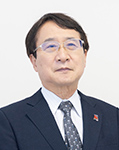Initiatives for immune-related adverse events by the outpatient pharmacist clinic
Vol 6, Issue 1, 2022
VIEWS - 3909 (Abstract)
Abstract
Early detection is the key in managing side effects because immune-related adverse events (irAEs) are becoming more serious, and their onset time differs. In our hospital, we conducted an outpatient pharmacist clinic for early detection of irAEs by self-care practice for the cases of immune checkpoint inhibitor administration. As a result of a retrospective survey of 207 cases, the percentage of irAEs found by pharmacist’s suggestion of the outpatient pharmacist clinic increased over time, and a high detection ratio was obtained even for irAEs with a late onset time. The incidence of serious irAEs was higher than that in the immediate post-marketing surveillance, and different factors were considered. Although there were some problems, the outpatient pharmacist clinic had a certain effect.
Keywords
Full Text:
PDFReferences
- Furukawa F. The Nobel prize in physiology or medicine 2018 was awarded to cancer therapy by inhibition of negative immune regulation. Trends in Immunotherapy 2018; 2. doi: 10.24294/ti.v2.i3.1065
- Paz-Ares L, Ciuleanu TE, Cobo M, et al. First-line nivolumab plus ipilimumab combined with two cycles of chemotherapy in patients with non-small-cell lung cancer (CheckMate 9LA): an international, randomised, open-label, phase 3 trial. The Lancet Oncology 2021; 22(2): 198–211. doi: 10.1016/S1470-2045(20)30641-0
- Larkin J, Chiarion-Sileni V, Gonzalez R, et al. Five-year survival with combined nivolumab and ipilimumab in advanced melanoma. New England Journal of Medicine 2019; 381(16): 1535–1546. doi: 10.1056/NEJMoa1910836
- Motzer RJ, Tannir NM, McDermott DF, et al. Nivolumab plus ipilimumab versus sunitinib in advanced renal-cell carcinoma. New England Journal of Medicine 2018; 378(14): 1277–1290. doi: 10.1056/NEJMoa1712126
- Seidel JA, Otsuka A, Kabashima K. Treating tumors with immune checkpoint inhibitors: Rationale and limitations. Trends in Immunotherapy 2017; 1(1): 2–9. doi: 10.24294/ti.v1.i1.20
- Noguchi T, Nakagawa M, Takagi J, et al. Effectiveness of reverse manual for immune-related adverse events (in Japanese). Japanese Journal of Lung Cancer 2021; 61(1): 17–23. doi: 10.2482/haigan.61.17
- Yoshino K. The management of immune-related adverse events associated with immune checkpoint inhibitors (in Japanese). Skin Allergy Frontier 2018; 16(1): 29–33.
- Watanabe H, Hata K, Ikeda M, et al. Management of immune-related adverse events based on a multidisciplinary team activity at Kyushu University Hospital (in Japanese). Japanese Journal of Cancer Clinics 2018; 64(5): 307–314.
- Shiokawa H, Tsuda T, Nakajima T. Immune checkpoint inhibitor side effect countermeasure team practice (in Japanese). The Pharmaceuticals Monthly 2017; 59(12): 2449–2454.
DOI: https://doi.org/10.24294/ti.v6.i1.1385
Refbacks
- There are currently no refbacks.
Copyright (c) 2022 Kiyonori Hamatake, Kazuaki Kojima

This work is licensed under a Creative Commons Attribution-NonCommercial 4.0 International License.
This site is licensed under a Creative Commons Attribution 4.0 International License.












